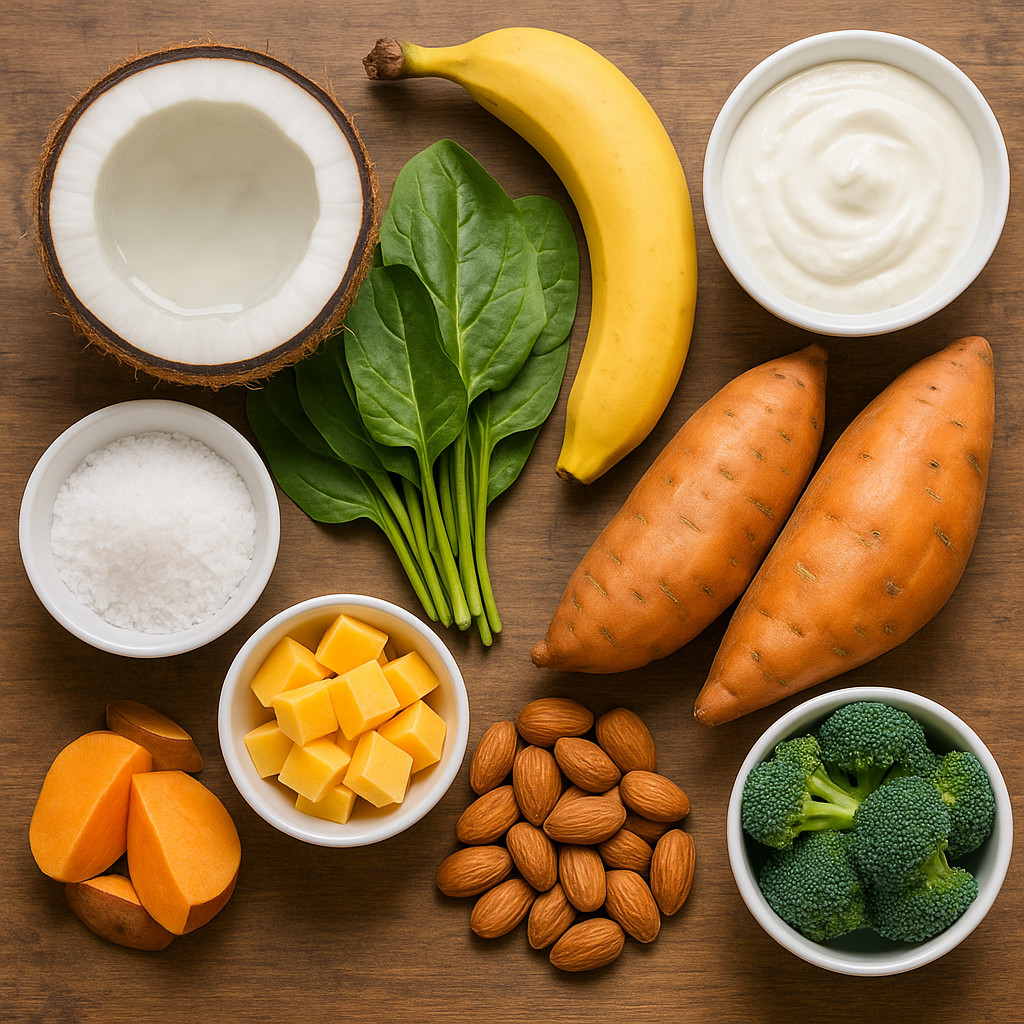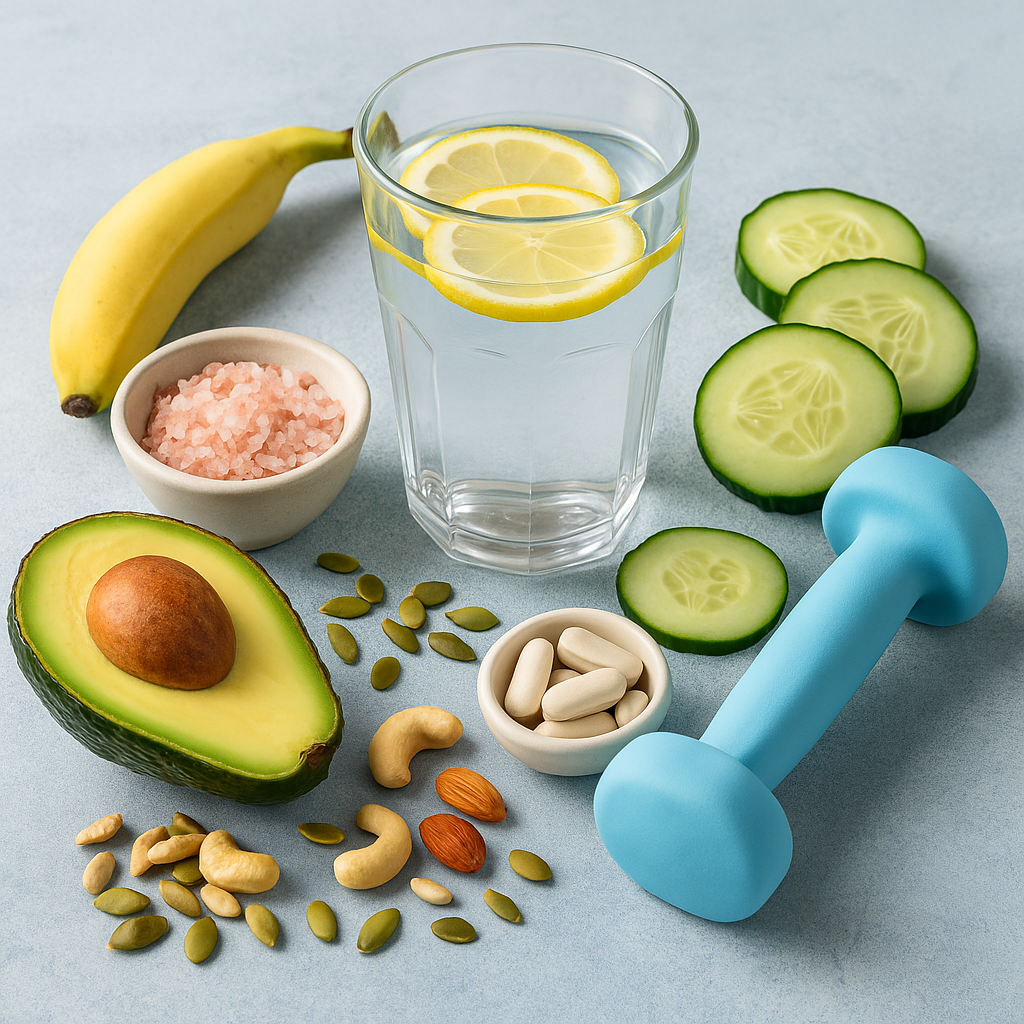News — electrolyte deficiency
Natural Electrolyte Sources: Best Foods for Hydration and Balance
best foods for hydration calcium and hydration coconut water benefits electrolyte deficiency electrolyte foods fluid balance foods food-based electrolytes homemade electrolyte drink hydration diet hydration tips magnesium for cramps minerals and hydration muscle hydration natural electrolytes natural sports drink plant-based electrolytes potassium rich foods rehydration foods sodium balance sports nutrition
When you think about hydration, you might immediately picture a bottle of water or a sports drink. But optimal hydration isn’t just about water—it’s also about electrolytes. These essential minerals help regulate fluid balance, nerve signals, and muscle contractions. Without them, water alone won’t keep you properly hydrated, especially if you’ve been sweating, exercising, or recovering from illness.
While electrolyte supplements and drinks have their place, the best sources of these vital minerals often come from whole, natural foods. In this guide, we’ll explore the top natural electrolyte sources, explain what each does in your body, and show you how to create a hydration-boosting diet that supports your energy, performance, and well-being.
The Role of Electrolytes in Hydration and Muscle Function: Causes and Symptoms of Imbalance
calcium electrolyte complex electrolyte deficiency electrolyte imbalance electrolyte supplements electrolytes hydration hydration and performance hydration tips keto electrolytes LongLifeNutri low electrolytes magnesium muscle cramps muscle fatigue potassium rehydration sodium sports hydration sweat loss
Electrolytes are more than just a buzzword on sports drinks — they are vital minerals that regulate countless physiological processes, especially hydration and muscle function. These electrically charged minerals, including sodium, potassium, calcium, and magnesium, ensure that your cells, nerves, and muscles function properly. Without balanced electrolytes, your body can’t maintain fluid equilibrium or support normal muscle contraction and relaxation.
Electrolyte imbalance can lead to dehydration, muscle cramps, fatigue, irregular heartbeat, and even more serious health issues if left unchecked. From high-performance athletes to everyday individuals, understanding how electrolytes work — and how to keep them balanced — is essential for maintaining health and performance. In this article, we’ll explore the critical roles electrolytes play, what happens when things go out of balance, and practical strategies to stay hydrated and energized.


